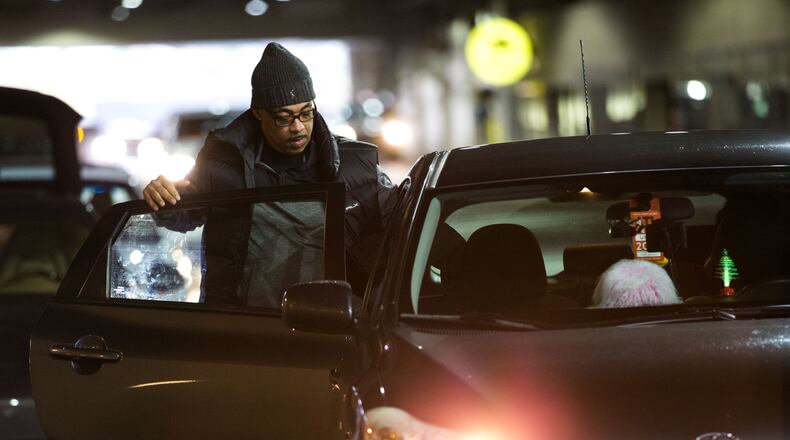In the first couple of months of legal ride-share pickups at the world’s busiest airport, Uber and Lyft carried more than twice as many customers from the airport as taxis, according to the city of Atlanta.
The city legalized Uber and Lyft pick-ups at Hartsfield-Jackson International Airport effective Jan. 1.
Uber and Lyft picked up 250,283 passengers at Hartsfield-Jackson in January and February, according to Katrina Taylor Parks, deputy chief of staff to Atlanta Mayor Kasim Reed. Taxis picked up 114,864 passengers in the same months.
“It’s not surprising,” said Atlanta city council transportation committee chairman C.T. Martin. “Everybody is saying Uber is the new way for transportation.”
The airport tracks pickups by the vehicles using transponders and vehicle tracking software, and charges a $1.50 fee per ride, along with an additional per-ride security surcharge of $2.35 per ride for companies like Uber and Lyft that use private background checks to make a total of a $3.85 surcharge for ride-share passengers.
Some types of travelers are more likely to use taxis than others. About 17 percent of the taxi rides are from the international terminal — a greater share than the roughly 12 percent of passengers who fly internationally.
Taxi drivers have asked for relief from airport officials because their business has declined since the arrival of Uber and Lyft. Cabbies are asking for a delay of a new requirement that their vehicles be seven years old or newer.
“The industry is in trouble,” said Rick Hewatt, president of Atlanta Checker Cab. He said his 70-year-old company “has been devastated by the competition that we’ve had come to the city.”
Uber and Lyft have changed the dynamics of transportation, Taylor Parks said. “We had people who were flying into Hartsfield-Jackson airport, the world’s busiest airport, who were requesting ride-share,” she said. “We held off as long as we could.”
Uber and Lyft have also disrupted other ground transportation services such as SuperShuttle, the airport shared-ride shuttle business that pulled out of the Atlanta market last month.
Ride-share customers may also have previously gotten rides from family or friends, driven themselves and paid for parking, or taken MARTA.
About the Author
Keep Reading
The Latest
Featured



